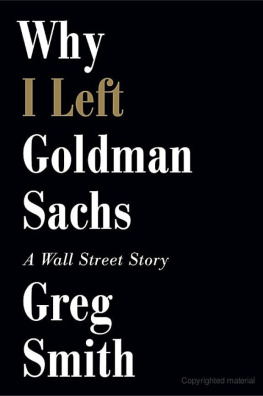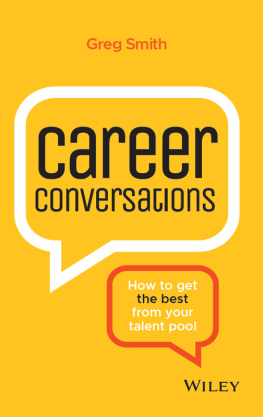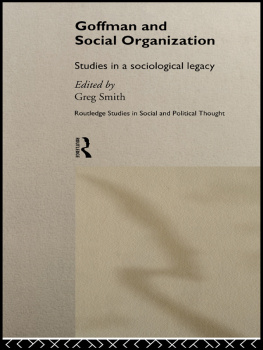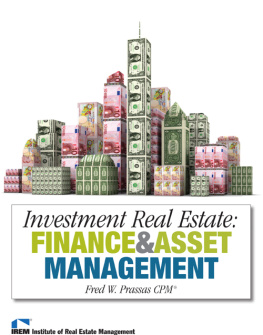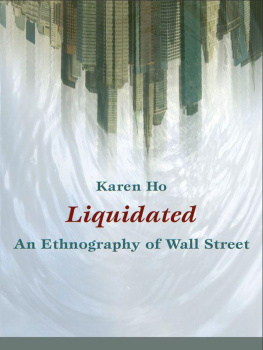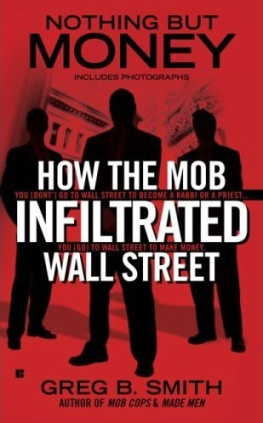GREG SMITH resigned in the spring of 2012 as the head of Goldman Sachss U.S. Equity Derivatives business in Europe, the Middle East, and Africa. Born and raised in Johannesburg, South Africa, Smith graduated from Stanford University before going to work for the firm full time in 2001. He spent his first ten years in the New York headquarters before moving to London in 2011. He currently lives in New York City.
First of all, I would like to thank Grand Central, for giving me the opportunity to write this book. My publisher, Jamie Raab, was a class act: knowledgeable and thoughtful from our first meeting, and consistent throughout. I am grateful to the whole team at Grand Central (in particular Kallie Shimek and Meredith Haggerty) for all their hard work and expertise.
I have never written a book beforeand I have not worked with editorsbut I have to think that John Brodie must be one of the best in the business. Equal parts kindness, wit, knowledge, and perceptiveness, I have appreciated his thoughtful guidance, and his capacity and willingness to listen to me from day one. Throughout the process, I felt lucky to have him by my side.
I would like to thank the following people for all their help and integrity: Jonathan Leibner, Paul Fedorko, Jen Rohrer, Tess Dmitrovsky, Sammy Bina, Fred Newman, Sheryl Galler, and Mark Levine.
I would also like to thank James Kaplan for his wisdom and invaluable help during this process.
I am so grateful to have been with my brother, Mark (in person), and my best friends, Lex Bayer and Dan Lipkin (on Skype), just minutes after the op-ed was published. None of them knew it was coming but it was so comforting to have them with me, and to have their advice and friendship, which I value so highly.
My close group of friends rallied to my side and supported me without question immediately: Jackie, Phil, Adam, Amitav, Ariel, Shimrit, Michael, Alexandra, Dov, Gavin, Sean, Jody, Sentheel, Brian, Ralph, Rowan, Hayley, Kevin, Alon, Gopal, John, and Kris. Thank you for being some of the most decent people and best friends a guy could ask for.
I have a very special family whom I rely on and love very much. Thank you to my aunt Pat; my brother, Mark, who teaches me so much; my best mate Carly, who is such an inspiration for me; my dad, for showing bravery in taking his pharmacy exam and moving to America; and my mom, for all she has done for me in my life.
Thank you also to Mr. Elliot Wolf, Mr. Digby Ricci, Jim Montoya, and Jon Reider.
It was June 12, 2000, and I was sitting in a conference room at 125 Broad Street, thirty stories above Lower Manhattan. I was twenty-one years old, and it was the first day of my summer internship at Goldman Sachs. An intern named Josh was standing at the front of the room, red-faced, getting absolutely grilled. He was trying to explain risk arbitrage, but was floundering badly. What I didnt know at the time was that his dad was a billionaire and one of the most powerful financiers in the world. But this was Goldman Sachs, and it didnt matter who your dad was. You had to prove yourself like everyone else.
Welcome to Open Meeting: a form of boot camp for the seventy-five summer interns in the sales and trading program and a venerable tradition at the firm. A partner would stand at the front of the room with a list of names and call on people at will with questions on the firms storied culture, its history, on the stock markets. Rapid fire. You had to be alive, awake, informed. Two people cried that summer under the interrogation. But there was no way around it: if you wanted a full time job at Goldman Sachsless than 40 percent of the class would make itthis was a test you had to pass, over and over and over again.
An interns performance in the Open Meeting was one of the three criteria the firm used to determine who would receive offers after graduation to come work at the worlds most prestigious investment bank. During this ten-week internship, you also needed to find and cultivate a rabbi who would want to hire you. And youd have to shine in the meetings and get your rabbi while walking the fine line between being competitive and being nice. Partners were always looking to see whether an intern had the makings of a culture carrier, Goldman-speak for someone who is able to deal with clients and colleagues in a way that preserves the firms reputationone that has made it an incubator for senators, treasury secretaries, and central bank governors.
Interrogation and humiliation were not things this meticulously selected group had tasted very often. I was surrounded by the sort of superachievers that people whispered about and pointed at in Ivy League dining hallsthe ones who got perfect scores on their SATs, graduated from high school at age fifteen, swam in the Olympics, played chess at the master level for relaxation, and, oh, yeah, Mark Mulroney, whose dad had been prime minister of Canada. But even for these superachievers, this was a tough room. Do well here, and you would be on the path to a career where even the average middle manager makes $250,000 a year and exerts some power and influence.
I was a pharmacists son from Johannesburg, South Africa, and had never heard about investment banking until I got a scholarship to Stanford University and came to America for the first time.
Also flanking the whiteboard with Josh at the front of the room was another intern presenter named Adam, who would later become one of my best friends and go on to manage billions of dollars at a hedge fund. But at this moment, at the height of the Internet bubble on Wall Street, these two interns were under severe fire. Adam was flushed, too, but maybe it was just the thrill of the moment. An applied math major, he was crushing it; he knew his stuff cold. Josh, on the other hand, was an English major, and completely out of his depth.
There were two Open Meetings a week, held after the days work on the trading floor was finished, usually on Tuesdays and Thursdays. The ninety-minute meetings were usually run by (in order of rank) a partner, a managing director, or a tribunal of three angry vice presidents, sitting imperiously at a table at the front of the room. Depending on the personal style of the people in charge, the meetings could be brutal. They were always intense.
Open Meetings started at 6:00 P.M. on the dotnot 6:01 or 6:02. There were always three or four interns who got there at 6:03 or 6:05; they were almost always made to wait outside. If too many people arrived late, we would all have to come in at five the next morning for a makeup meeting; the partner would also show up at 5:00 A.M. Once again, if you arrived at 5:05, you were made to wait outside. This rule was strictly enforced. There were people who just couldnt get there on time, and it reflected poorly on them.
The interns sat behind long tables arranged in rows. On the tabletop in front of you, youd place a pad of paper containing your preparatory notes. At the head of the room, the person in charge, armed with a list of all the interns names, would kick off the meeting by cold-calling peoplejust picking names at random. Out at the rows of tables, every intern was praying, Please, dont let it be me.
I was nervous but ready. My strategy was to volunteer, very quickly, whenever I knew the answer to a questionthen those running the meeting would be less likely to pick on me later, for an answer I didnt know. Some people seemed totally unfazed by being called on; but several, male and female, seemed undone by the experience:
VP (pointing): Okay, third row, second seat over. Stand up and state your name.
INTERN (standing slowly): Brynn Thomas, Brown University.
VP (firmly): Tell me about Microsoft stock. What is our house view? What does our research analyst think?

